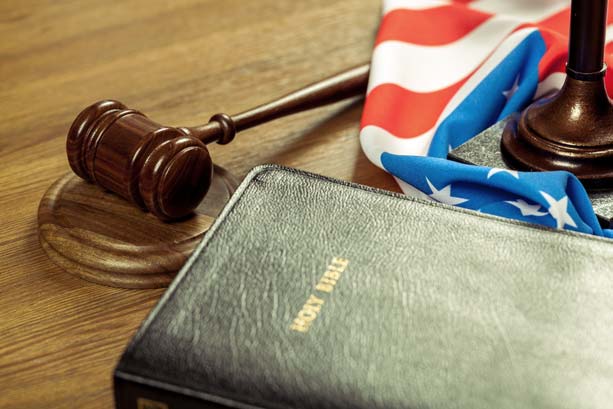
Ahad Ha'am , one of the foremost pre-state Zionist thinkers and a secularist, famously said, "More than Israel has kept the Sabbath, the Sabbath has kept Israel." The Israeli Shooting Federation has shockingly targeted the vitality of the State of Israel by rejecting an extremely modest accommodation that would have given two Sabbath observers a fair opportunity to compete in an air-pistol tournament scheduled for Saturday.
Since scoring in the tournament depends entirely on results of rounds of individual firing, the Sabbath observers asked that they be permitted to shoot on Friday. Their scores could then be entered in the competition held on the following day when non-observant competitors would fire their rounds. The Shooting Federation (which has, it appears to me, now forfeited the privilege of being called "Israeli") disdainfully denied the request made by Professor Aviad Hacohen on behalf of the marksmen, and gave no reason other than the irrelevant observation that the "overwhelming majority" of shooters and staff members prefer to shoot on Saturday.
Sabbath observers did not ask that the tournament be rescheduled for a day other than the Sabbath. They requested only that they be allowed to shoot alone on Friday under conditions applicable to all competitors. Denying their request excluded them from the competition for no reason other than the fact that they are shomrei the Sabbath.
Shame on the Shooting Federation! America does not treat its Sabbath-observing sportsmen so shabbily. The 2012 experience of the high school basketball team of the Beren Hebrew Academy of Houston, Texas, should have been a model for Israeli sports authorities.
The Texas Association of Private and Parochial Schools scheduled its state-wide high school basketball competition to culminate in a set of final games to be held on Friday night and Saturday afternoon in early March. Beren Academy's superb team made it to the finals, but its members were Sabbath-observers. The teams that were to be their opponents agreed to play the final rounds on Friday afternoon and Saturday night out of respect for the shomrei the Sabbath, but the Association's director initially refused, like the intractable Shooting Federation, to make any accommodation. He announced publicly that Beren would be treated as having forfeited its right to participate in the finals. He even rejected a plea from Houston's mayor and from one of Texas' United States Senators to reschedule the matches.
The plight of Beren's team drew the attention of The New York Times, and parents of some team members sought the pro bono help of our family law firm. We enlisted Richard Rohan, a son of Holocaust survivors who is a partner in a leading Dallas, Texas, law firm, and his firm also took on the case pro bono. Because the finals were to be played on a governmentally owned court, we had grounds to threaten legal action against the Association for denying constitutionally protected religious rights.
On Thursday morning we filed a federal lawsuit on behalf of several Beren Academy team members. Less than two hours after the lawsuit was filed, the Association's director withdrew his announcement that Beren had forfeited and rescheduled the semi-final game for Friday afternoon and, if Beren won that game, scheduled the final match for 8 p.m. on Saturday night.
Beren won the Friday afternoon game. The Saturday night match, watched by thousands who had heard of the controversy on a special television feed, resulted in a 4-point victory for Beren's opposition. The experience proved that America was sensitive to religious observance and was a Kiddush Hashem by the Beren Academy. The enduring prize for Beren is that the rules of the basketball competition of the Association have now been changed to require reasonable accommodation to the religious observance of competing teams (including Seventh-Day Adventists, who are active competitors).
Our law firm (consisting of my daughter Alyza and myself) had, in fact, overcome similar resistance in another competitive context three years earlier. The finals of the National High School Mock Trial Competition were to be held in Atlanta, Georgia, on May 9, 2009 — a Saturday. The team of Boston's Maimonides School (founded by Rabbi J.B. Soloveitchik, zt"l) defeated all other Massachusetts teams and was entitled to participate against the champions in other states in the final round in Atlanta. Maimonides' request for a rescheduling of two matches, supported by Maimonides' competitors, was unceremoniously denied by the chairman of the competition. He announced that if the Maimonides team failed to participate on Saturday, it would be treated as forfeiting its matches.
Fortunately, the mock trials were to be held in Georgia's official state courtrooms. I wrote to the United States Department of Justice asking that federal funding to Georgia's judiciary be barred because the refusal to accommodate violated constitutionally protected rights. The Georgia State Bar, however, endorsed the decision of the competition management to deny any accommodation.
Late on Wednesday night before the scheduled weekend matches, Chief Judge Doris Downs of the local Superior Court heard of the controversy. She issued a public statement that she would close the Georgia courts to all 150 scheduled matches if Maimonides' requested accommodation for religious rights was denied.
Left with no choice, the National High School Mock Trial Competition announced that it would reschedule the Maimonides matches to avoid conflict with the Sabbath. Although Maimonides did not ultimately achieve national first prize, its dedication to Sabbath-observance won the hearts of both Jewish and non-Jewish Americans. As a result of this experience the National High School Mock Trial Competition changed its bylaws to require accommodation to Sabbath-observing teams.
It is surprising, even in this topsy-turvy world, that Israeli sports authorities must learn a lesson of respect for Sabbath observance from their counterparts in the United States.
Nathan Lewin is a Washington, D.C., attorney who specializes in religious freedom cases before the U.S. Supreme Court.


 Contact The Editor
Contact The Editor
 Articles By This Author
Articles By This Author